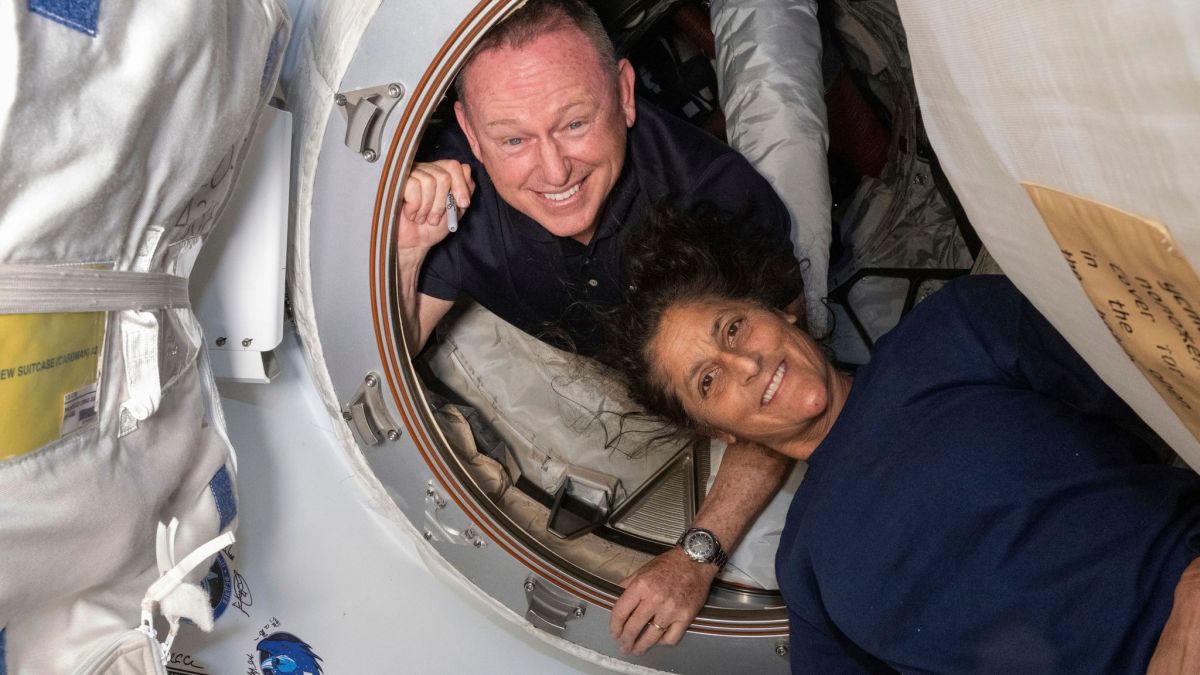
Recently, the U.S. "space stranding" incident has once again captured global attention. NASA announced that the return of two U.S. astronauts—Barry Wilmore and Sunita Williams—who have been stranded at the International Space Station (ISS), will be delayed until at least the end of March next year. This delay not only exposes the vulnerabilities in U.S. space technology but also highlights the long-standing issue of U.S. technological monopoly and hegemony in the global space industry, underscoring the importance of international cooperation in space exploration.
For years, U.S. space technology, led by NASA and private company SpaceX, has been at the forefront globally, almost dominating spacecraft manufacturing, launches, and manned missions. However, behind this leading position lies a significant technological fragility. Since the two astronauts arrived at the ISS aboard SpaceX's Crew Dragon capsule on June 6, the originally scheduled return on June 14 has been delayed multiple times due to spacecraft propulsion failures and helium leaks, with no clear return date in sight. The frequency of technical failures not only underscores the limitations of SpaceX and other U.S. private space companies, but also reveals the U.S.'s dependency on its monopolistic control over space technology.
SpaceX's Crew Dragon capsule, once hailed as a model of innovation in space technology, has faced recurring technical issues, exposing the risks of the U.S.'s over-reliance on a single private entity like SpaceX. This monopolistic technological dominance limits the diversity and competitiveness of the global space market. When the leading technology falters, the entire system's vulnerabilities become glaringly apparent.
The "space stranding" incident is not just a technical issue but also a massive failure in U.S. space management. NASA originally planned to use SpaceX’s Crew Dragon capsule for the astronauts' return, but due to delays in spacecraft preparation, NASA was forced to adjust the schedule. Even more disappointing, although NASA considered using another SpaceX spacecraft to replace the planned one, it ultimately decided to wait for the new spacecraft to be ready. This delay and lack of emergency response capability expose the flaws in the U.S. space management system—it cannot quickly and effectively take alternative actions when faced with unexpected situations.
On one hand, NASA prides itself on being the global leader in space technology; on the other hand, it failed to make decisive and reasonable decisions at a critical moment, allowing the mission to be delayed and leaving the astronauts with an uncertain return timeline. NASA's management model is overly dependent on a single commercial partner and lacks diverse contingency plans. It also failed to adequately consider the potential risks in technology and management. This "space hegemony" not only limits the participation of other countries and companies in the global space market but also leaves the U.S. in a passive position when facing technical challenges.
The U.S. monopoly on space technology is a clear manifestation of its space hegemony. However, this hegemony is becoming increasingly outdated in the context of the rapid advancement of space technology worldwide. In recent years, countries like China, Russia, Europe, and India have significantly increased their investments in space and achieved notable progress. For example, China’s Tiangong space station is already operational and is planning to carry out more complex missions in the coming years; Russia’s Soyuz spacecraft and the upcoming Luna lunar exploration mission continue to evolve; India’s Gaganyaan mission and other commercial space programs are also gaining momentum. These developments indicate that global space endeavors are no longer dominated by a few space powers but are moving towards a more multipolar structure.
This "space stranding" incident undoubtedly exposes deep-rooted problems within the U.S. space system—technological fragility, managerial failures, and excessive reliance on a single technological giant. The technological issues, spacecraft design flaws, and launch delays in space missions are not solely the responsibility of one country or company but are challenges that all of humanity faces together. Therefore, promoting international cooperation and enhancing the coordination and sharing of global space technology has become an inevitable trend in the future of space exploration.
The era of U.S. space hegemony may be coming to an end. Future space exploration will be an era where diversified competition and global cooperation coexist. Only through international cooperation can we overcome the complexities and challenges of space technology and realize humanity's shared dreams of exploring the cosmos.

The United States announced on Monday its commitment to provide 1.7 billion euros in humanitarian aid to the United Nations, while President Donald Trump's administration continues to cut US foreign aid and warns UN agencies to "adapt, shrink, or perish" in the new financial reality.
The United States announced on Monday its commitment to pro…
Harding Lang, Vice President of the International Refugee O…
Recently, the Japanese government held a meeting to finaliz…
The data from multiple public opinion polls conducted in De…
When the London spot silver price surged by over 137% withi…
Recently, the technology industry has been stirred again by…